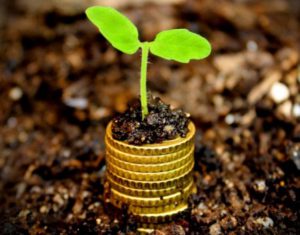HIGHVIEW’S FOCUS ON ESG INTEGRATION AND SOCIAL IMPACT INVESTING
By Loren Francis on August 15th, 2018
 In 2017, HighView proudly became a member of the Responsible Investment Association (RIA). HighView believes there is a fiduciary duty to invest prudently without taking undue risk. Incorporating Environmental, Social and Governance (ESG) standards into investment decisions to better manage risk and generate sustainable long-term returns makes sense. We believe ESG due diligence should be designed to measure how a company does business, to identify potential social and ethical issues, and to quantify the impact on corporate performance for disclosure purposes (i.e. better disclosure by companies should include climate-related financial disclosure).
In 2017, HighView proudly became a member of the Responsible Investment Association (RIA). HighView believes there is a fiduciary duty to invest prudently without taking undue risk. Incorporating Environmental, Social and Governance (ESG) standards into investment decisions to better manage risk and generate sustainable long-term returns makes sense. We believe ESG due diligence should be designed to measure how a company does business, to identify potential social and ethical issues, and to quantify the impact on corporate performance for disclosure purposes (i.e. better disclosure by companies should include climate-related financial disclosure).
Large public companies can have a social and environmental impact at every level by way of their networks, supply and distribution chains, labour force, and in the communities where they operate. As investors, we can make an impact by being intentional through our allocation of capital and through shareholder engagement with management. There has been a growing interest in assessing how asset managers are thinking about ESG criteria within their research evaluation. In this regard, ESG metrics are not uniform across investment managers. While the “G” has been a significant part of manager due diligence given the ability to measure corporate governance, “S” is also now becoming better understood as it relates to such things as diversity, pay equality, zero tolerance, and the work environment. “E” still has a ways to go. Corporate disclosure on ESG factors will continue to improve as demand for the information continues to increase. Many public companies are taking initiatives in regards to their carbon footprints and committing to clean energy projects suggesting a shift in mindset towards sustainable business decisions.
Given the fast growing movement towards sustainable investing, statistics tell us that 80% of investment managers now practice some form of ESG metrics within their  investment research and corporate actions. The integration of ESG considerations within investment processes and across asset classes continues to gain traction among investors and concerned citizens, both from the perspective of social impact, but also in the form of positive financial performance. While we had long known that our chosen managers integrated ESG criteria—particularly governance—into their investment process to varying degrees, we did not focus specifically on such practices.
investment research and corporate actions. The integration of ESG considerations within investment processes and across asset classes continues to gain traction among investors and concerned citizens, both from the perspective of social impact, but also in the form of positive financial performance. While we had long known that our chosen managers integrated ESG criteria—particularly governance—into their investment process to varying degrees, we did not focus specifically on such practices.
So in January of this year, we sent out an ESG due diligence questionnaire to our investment managers to determine their current level of ESG integration. We were pleased to confirm that our investment managers have been integrating ESG into their investment research for some time with most having a specific ESG or Responsible Investment Policy in place. Our investment managers seek to invest in quality companies, and an assessment of that quality will include a company’s practices in each of the “E”, “S”, and “G”. A strongly held belief across our platform of managers is that companies that ignore sustainable practices, disregard the effects of their operations on the communities in which they operate, or have improper practices around protecting rights of all stakeholders, will likely be poor long-term investments. As part of our ongoing monitoring and due diligence of our investment managers, ESG integration and discussion is now a part of our formal review.
Next Steps in Impact Investing for HighView
 A recent paper by SVX and MaRS suggests that many Canadian high net worth households are interested in the idea of impact investing, particularly younger, wealthier, and female investors. As Amit Bouri, chief executive of The Global Impact Investing Network (GIIN) says, “Investors have been thinking for decades on how to get harmful things out of their portfolios. Impact investing is about proactively investing in solutions. It is a much more intentional step about investing in things like climate change directly.” Impact investments are made with the intention of generating financial return plus positive social and/or environmental consequences. Examples of impact investment might include clean technology investments in agri-tech, energy, smart cities and water, or food in natural and organic foods, and ethical and sustainable foods, or in affordable housing, or helping people in poverty. There are a number of themes, sectors, geographies, and asset classes available to social impact investments.
A recent paper by SVX and MaRS suggests that many Canadian high net worth households are interested in the idea of impact investing, particularly younger, wealthier, and female investors. As Amit Bouri, chief executive of The Global Impact Investing Network (GIIN) says, “Investors have been thinking for decades on how to get harmful things out of their portfolios. Impact investing is about proactively investing in solutions. It is a much more intentional step about investing in things like climate change directly.” Impact investments are made with the intention of generating financial return plus positive social and/or environmental consequences. Examples of impact investment might include clean technology investments in agri-tech, energy, smart cities and water, or food in natural and organic foods, and ethical and sustainable foods, or in affordable housing, or helping people in poverty. There are a number of themes, sectors, geographies, and asset classes available to social impact investments.
Many global family offices are engaged in impact investing, and many more plan on increasing their allocations going forward as more ethically minded clients move in this direction and as advisors educate their clients on the opportunities. At HighView, we are exploring the opportunity of a Social Impact Fund that would be available to our clients as part of our portfolio allocation strategy. Our review will include an examination of asset classes, themes, sectors, geographies, and liquidity, in both public and private investments.
Bill Gates predicted that philanthropy would remain the primary way the wealthy help tackle social and environmental issues. Transitioning from philanthropy to impact investing has the ability to create sustainability over the long term.
HighView is an experienced portfolio management firm for affluent Canadian families and foundations. We would be happy to discuss our goals-based investment approach with you and your professional advisors.
You may also be interested in: